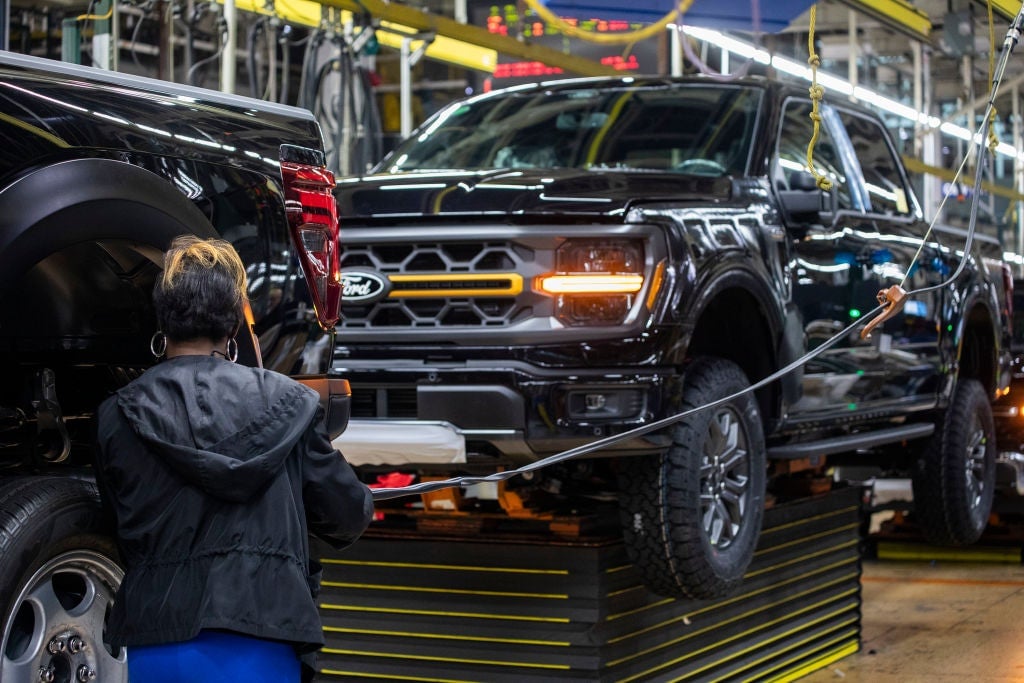The 'fairy tale' problem with Trump's car tariffs, according to an analyst
Tariffs could saddle the U.S. auto industry with $100 billion in additional annual costs, Wedbush says

One major auto-industry tracker thinks President Donald Trump’s vision of purely U.S.-made cars is purely fantasy.
Suggested Reading
A group of Wedbush analysts led by Dan Ives sent a note Tuesday saying that the president’s “head-scratching tariff slate” could result in a 15-20% reduction in demand for new auto purchases in the U.S. in 2025.
Related Content
“We reiterate the concept of a U.S.-made car with all U.S. parts is a fairy tale fictional narrative,” the analysts wrote. “This auto tariff (in its current form) will send the auto industry into upside down mode and raise the average price of cars between $5k on the low end and $10k to $15k on the high end.”
The analysts pointed out that manufacturers that make their vehicles in the U.S. import a large portion of their parts from abroad and therefore won’t be able to avoid the tariffs.
Even Tesla (TSLA), led by Trump fanatic and DOGE head Elon Musk, is far from immune. “While Tesla is in a much better situation relatively speaking … the auto tariffs are a complicating factor that could disrupt the supply chain and add cost inputs at a time Tesla and Musk are trying to balance its operations globally,” Ives and company wrote. “Musk is a vocal opponent to tariffs as it’s clear the negative impact this would have on the U.S. auto market with U.S. consumers ultimately paying the higher prices/taxes/tariffs.”
The analysts estimated that the tariffs in their current form would add up to $100 billion in annual costs to the U.S. auto industry. These costs “will essentially get passed directly onto the consumer and clearly erode demand on Day 1 of tariffs,” they said.
On Monday, Trump said he would be open to short-term exemptions for automakers that import parts from Canada and Mexico. “They’re gonna make them here, but they need a little bit of time, so I’m talking about things like that,” he said. Still, no further details on potential exemptions have been made public, leading to uncertainty throughout the auto industry and beyond.
During Tuesday morning trading, Ford (F) stock fell 2.7%, General Motors (GM) lost 1.9%, and Stellantis (STLA) was breakeven. Tesla stock rose 1.3%.